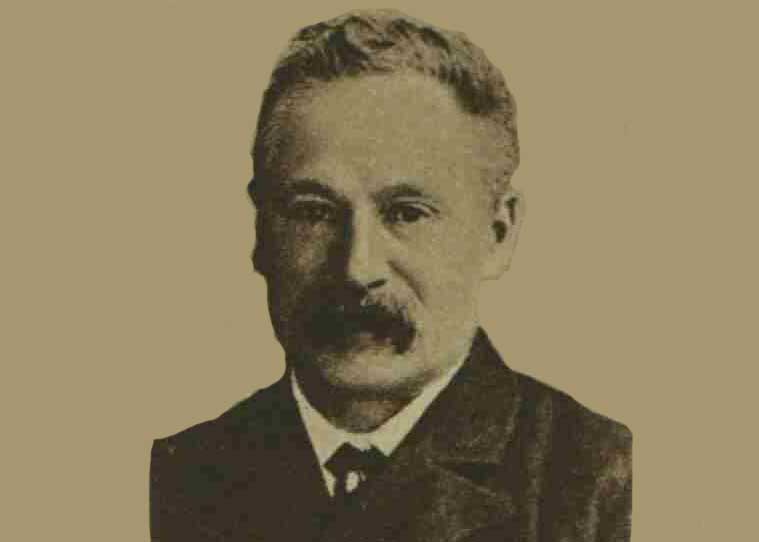For some of the residents of the Victorian East End of London, Christmas was not a time to either look forward to or enjoy, since their daily battle against the hardship of their daily life carried on irrespective of the festive season.
Freeman’s Journal, in the following, article that appeared on Friday, 2nd January, 1891, looked back on two deaths that had taken place over the Christmas period in 1891, the inquests into which had taken place before the district’s Coroner, Wynne Edwin Baxter.

CHRISTMAS IN THE EAST END OF LONDON
DEATHS FROM DESTITUTION
“Mr. Wynne Edwin Baxter, the East London Coroner, held an inquest at the Vestry Hall, St George’s-in-the-East, on Saturday, respecting the death of Emma Mills, aged 61, the wife of a dock labourer, at 7 Peli Place, St George’s-in-the-East.
George Mills, the husband, a miserable-looking individual, poorly clothed and with very bad boots, stated that his wife had been ailing for a year past, but she had never taken to her bed.
TAKEN SUDDENLY ILL
On the 22nd of December, she was taken suddenly ill, and the witness sent for a doctor, but she died the same night. She had had no medical attention for five years.
Witness had been unable to obtain any work lately on account of his age. Last Monday he managed to earn 1s 6d at the river side; he could not get work in the docks.
The Coroner:- “I was thinking you did not look strong enough to do dock work.”
Witness:- “That’s the truth of the matter.”
NO ASSISTANCE
Continuing his evidence, the witness said that his wife used to earn a little at fur-sewing, and together they might earn as much as 10s per week. This was their total income, and out of this half-a-crown had to be paid for the rent of their one room.
He had no friends to assist him, and he had never had any outdoor relief from the parish. He did apply once for his wife when she was ill, but they offered her the infirmary, to which she refused to go, as she had an aversion to it. He had not applied since.
The Coroner:- “It is very difficult to place one’s self in another’s position, but if I were you I should certainly go into the workhouse at least for the winter.”
Witness:- “That’s what I intend to do.”
A WRETCHED ROOM
Dr F. J. Oxley, of Dock Street, stated that he saw the deceased on Monday last, and found her in a dying condition.
The room was in a wretched state.
There was an old table and two or three chairs, some without legs and others without seats. There was no bed or bedstead, and the poor woman was sitting on some old rags and sackings on the floor, supporting herself with one hand, as she could not bear to lie down.
The only signs of food were some pieces of dried bread, which had evidently been picked up out of the gutter, as they were covered in mud.
There was a small fire, and a bottle with a candle in it.
The Coroner:- “I was wondering which was the religious body that looks after the poor in this district.”
A Juryman:- “They are afraid as a rule to go into such places.”
THE CAUSE OF DEATH
The doctor said that the cause of death was bronchitis, accelerated by the miserable surroundings and want.
The husband, recalled, said that no one from church or chapel had ever been to see him.
The Coroner:- “I can’t help thinking you have been starved, both of you; but perhaps you don’t like to acknowledge it.”
The Witness:- “I certainly must admit that.”
The jury eventually returned a verdict of “Death from bronchitis, accelerated by want and the miserable surroundings.”
THE DEATH OF WALTER TURNER
A second inquiry was held at the same place on the body of Walter Turner, aged 82, formerly an engineer.
The widow deposed that on Christmas Eve her husband complained of pains in his chest. She sent for a doctor, who on arrival pronounced life extinct.
He had been blind for some years.
HOW THEY LIVED
He had a pension of £5 a year, and witness sometimes earned about half-a-crown per week. The pension paid the rent, and they lived on the half-crown. She did not want much to eat, and lived on a piece of dry bread a day.
They had never had any relief from the parish, but had the parish doctor on one occasion.
The church people used to come and see her, but they had not done so lately. A Scripture-reader came te see them.
DISGRACEFUL CASES
A Juryman:- “All prayers and no bread; more pity than relief. I think it’s disgraceful that these cases are not seen to.”
A NATURAL DEATH
Dr. J Heaney stated that death was due to syncope. The room was fairly comfortable, but rather bare.
The jury returned a verdict of natural death.
The coroner gave the woman 2s 6d, and advised her to purchase some food with it, for which she seemed very grateful.”
